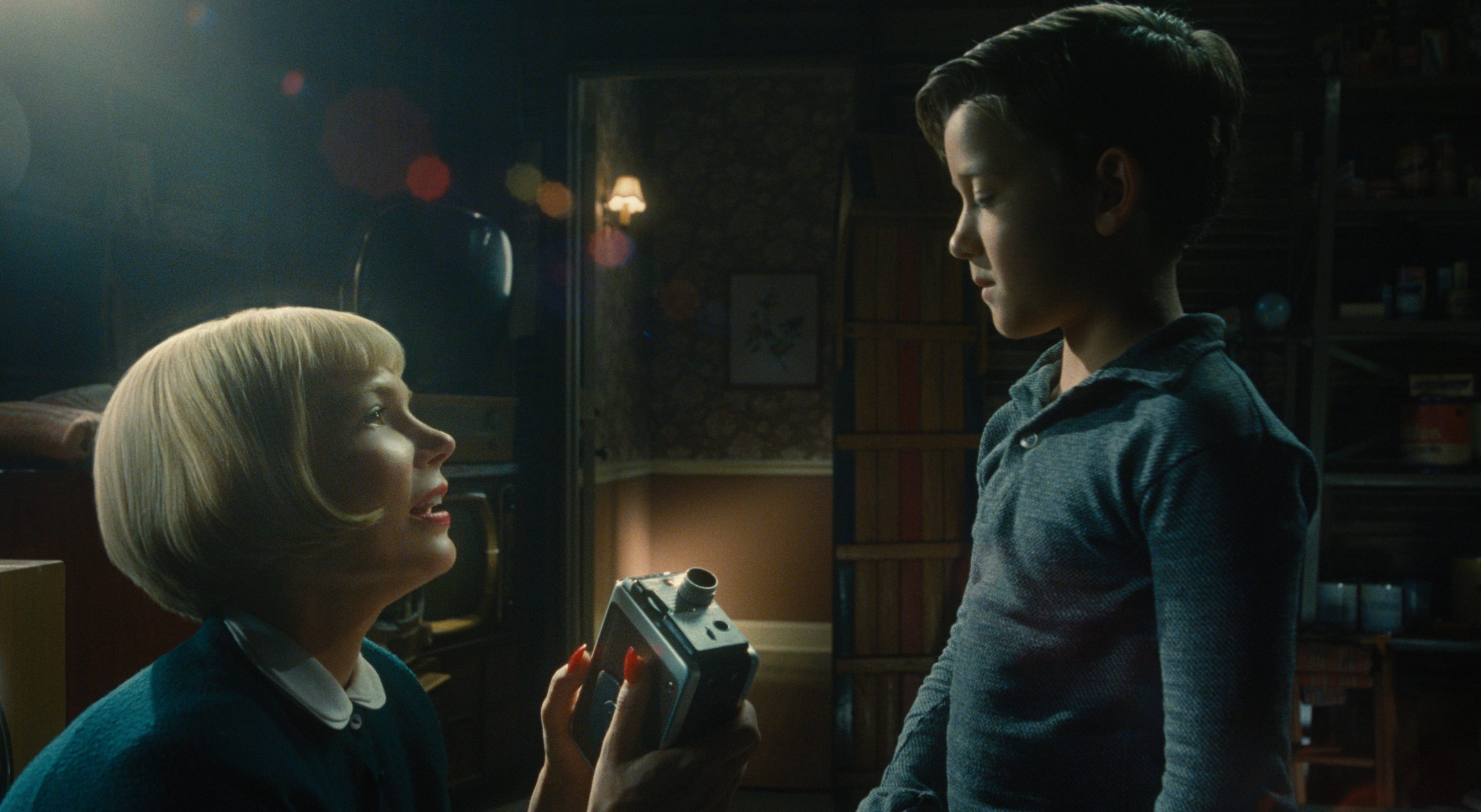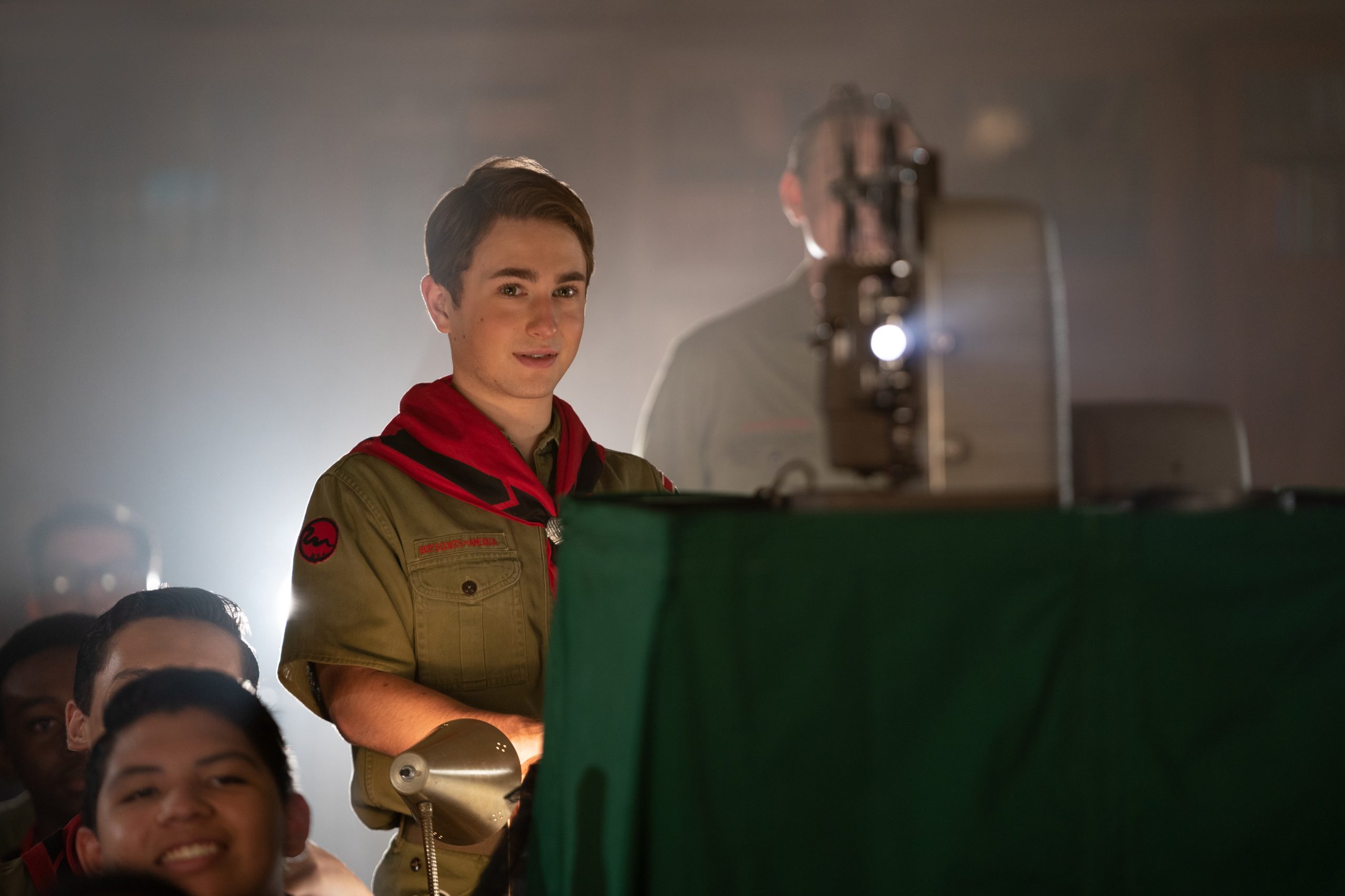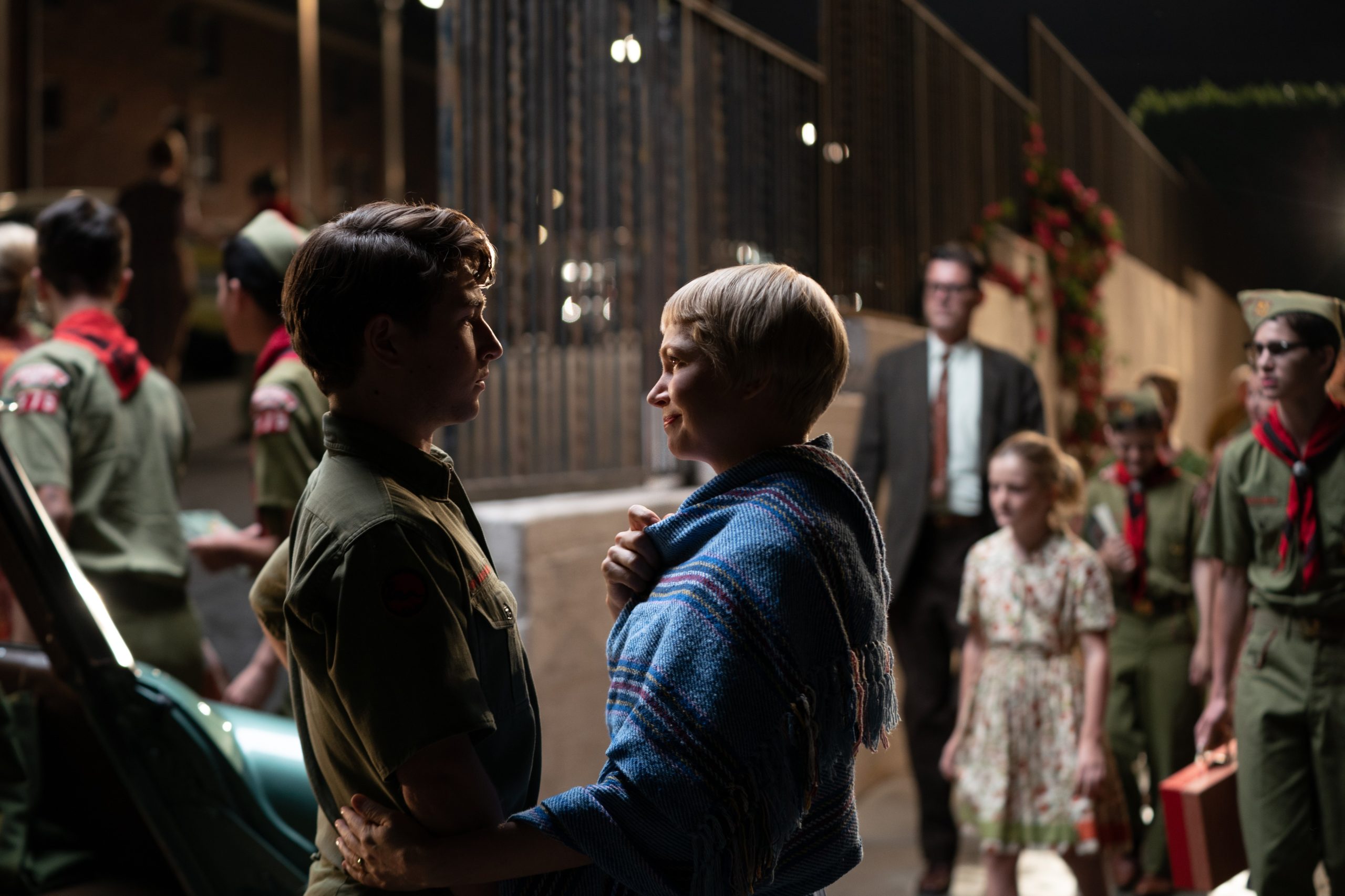
★★★★☆
Hollywood loves stories about itself. Recently, several filmmakers have taken a much more detailed, personal look at their own cinematic upbringing. Movies, the silver screen, are a way for us to understand them; Kenneth Branagh juxtaposed his upbringing in Ireland with his burgeoning love of cinema in Belfast and Sam Mendes recently tried to understand his mother’s mental health through the healing powers of cinema. Damien Chazelle projected his own disappointment over Hollywood into his latest film, Babylon.
The latest to add their voice to the conversation is Steven Spielberg. Undeniably a master at his craft, Spielberg’s The Fabelmans is by far his most personal film and offers us a detailed look at what made the great auteur love cinema and become the director he is today.
Throughout the film, we follow Sammy (first played by Mateo Zoryan, then Gabriel LaBelle). In the opening scene, Sammy is taken to the pictures by his parents, the free-spirited Mitzi (Michelle Williams) and stern-yet-loving Burt (Paul Dano). A train crash witnessed on screen fascinates Sammy, who looks to recreate it with a toy train.

Gabriel LaBelle as Sammy Fabelman in The Fabelmans, co-written, produced and directed by Steven Spielberg.
This ignites Sammy’s deep love for the moving pictures and making films. He grows up to be an amateur director, staging ambitious sequences and directing them with unrivalled passion and vision. As Sammy grows older, he also grapples with his parents’ troubled marriage as well as dating and his Jewish faith.
The Fabelmans is constantly fascinating, but often too sentimental and sanitised to provide a true, unbiased look into the life of Spielberg. It’s old-fashioned to a fault, but it’s also hard not to admire Spielberg’s masterful control of his craft.
The same sense of wonder which dominated Spielberg’s best films, such as E.T., Jurassic Park and Raiders of the Lost Ark, is also present in The Fabelmans. “Movies are dreams you never forget,” one character muses and indeed, at times the film adopts a dream-like quality. Spielberg’s love of cinema is felt throughout The Fabelmans and not just watching films, but making them.
We see in great detail all the effort that goes into making a movie. Filming it, figuring out your shots, directing your actors and then editing it, cautiously cutting the footage into the right order. For Spielberg, there’s no greater source of truth than cinema. He’s constructing his own story just as much as he’s constructing those fantastical, fictional films in his youth.

(from left) Sammy Fabelman (Gabriel LaBelle) and Mitzi Fabelman (Michelle Williams) in The Fabelmans, co-written, produced and directed by Steven Spielberg.
The Fabelmans, which won Best Film – Drama at the Golden Globes, is impeccably shot and directed. Not a single hair is out of place under Spielberg’s vision, which sometimes translates to a certain sense of control, which prevents Spielberg – or the audience, for that matter – from really seeing the truth. Perhaps this is just Spielberg’s version of it, his truth so to speak.
Young Gabriel LaBelle is wonderful as the young director-to-be. Paul Dano and Michelle Williams play his parents, who are complete opposites, with care and sincerity. In many ways, The Fabelmans is a film of and about opposites; art vs. science, nature vs. nurture, Mitzi vs. Burt.
Much like Empire of Light and the excellent Aftersun, The Fabelmans boils down to attempting to understand your own parents. Spielberg and co-writer Tony Kushner try to find logic and reason in Mitzi’s behaviour with a fictional story that is still rooted in real events and real people. Who was she? Why did she behave the way she did? There might not be concrete, final answers present in The Fabelmans but there’s a sense of peace and closure for sure.
With a classic score from John Williams and precise direction from Spielberg, The Fabelmans is one of the finest films about cinema itself. While it does occasionally succumb to sheer melodrama, it’s Spielberg at his most sincere and honest.
The Fabelmans is in cinemas 27 January.




